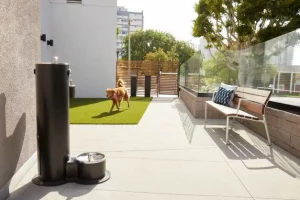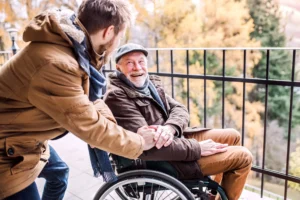Thank you for reading our blog. Things change quickly in assisted living, so please don't take this as the last word. Call us to make sure you are getting the current and best information at the best prices. Our service is provided at no cost to you. You don't need to figure it out alone. Call us at 310-853-8282.
Care facilities for people with Alzheimer’s and dementia are evolving. In traditional dementia care settings, any person with a diagnosis of Alzheimer’s, dementia, or other cognitive disease is required to live in a secured memory care wing, regardless of their capabilities or level of acuity. This has resulted in persons with dementia who are still high functioning having to share living space with seniors who may be severely impacted and in the last stages of the disease. Not an environment where either group will thrive.
In Los Angeles today, there are an increasing number of alternative living arrangements that better respond to individuals at the different stages of dementia. In this blog post, I will review the 3-stage model of Alzheimer’s and dementia and what kind of facility is best for each.
Montreal Cognitive Assessment Test – MoCA
The most widely used tool to determine mild cognitive impairment and Alzheimer’s is the Montreal Cognitive Assessment test, MoCa. It has a 30-point scale and asks test-takers to execute a series of tasks that evaluate attention and concentration, executive functions, memory, language, conceptual thinking, calculations, and orientation. A score of 26-30 is normal. 18-25 is Mild Cognitive Impairment/Early Dementia. 10-17 is Moderate dementia. <10 is Severe or Late-Stage Dementia.
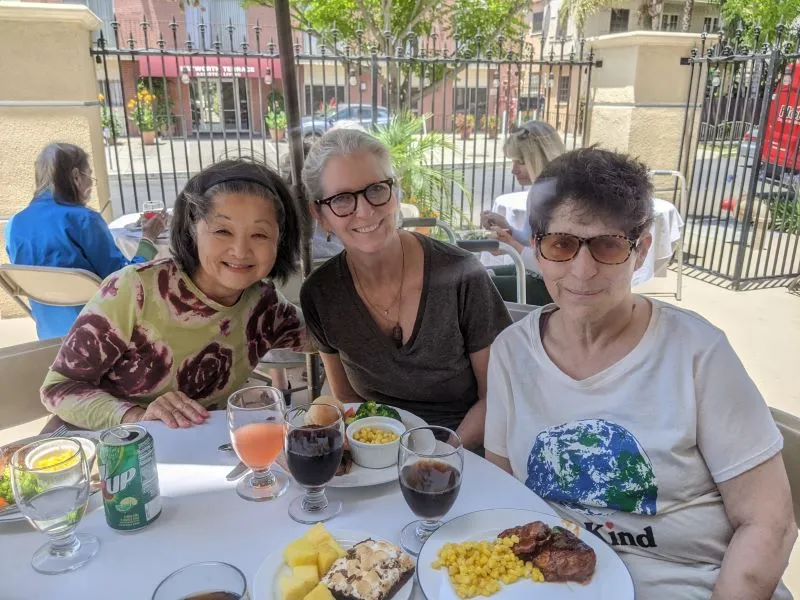
Stage 1- Mild Cognitive Impairment/Early Dementia (MoCa Score 18-25)
In this first stage, problems can include short-term memory loss, trouble with executive function activities such as scheduling and keeping appointments and paying bills, repeating questions, getting lost, taking longer to complete tasks, and personality or behavioral changes. People are often diagnosed in this stage.
What Type of Memory Care Is Best for Stage 1: People with mild cognitive impairment or early stages of Alzheimer’s and other forms of dementia can still be alert, engaged and conscious of their surroundings. While in California, people diagnosed with mild cognitive impairment can live in assisted living, the traditional model of memory care requires an individual with a dementia diagnosis to live in a secured memory care unit, along with residents who will be in more declined stages of the disease. Not an optimal situation for a person to thrive or live to their potential.
In recent years, Los Angeles has become home to several quality facilities that cater specifically to high-functioning seniors with dementia diagnoses. Most of these are all memory care communities that segment their population by level of capability. Individuals who are still social, able to self-direct their activities with some prompting and reminders, and who are performing most of their own activities of daily life live in a transitional assisted living environment. This early stage living environment emphasizes programming to maximize brain health. Since physical care needs are less acute in the early stages of memory loss, the focus is on fostering positive social engagement and activities that stimulate brain function.
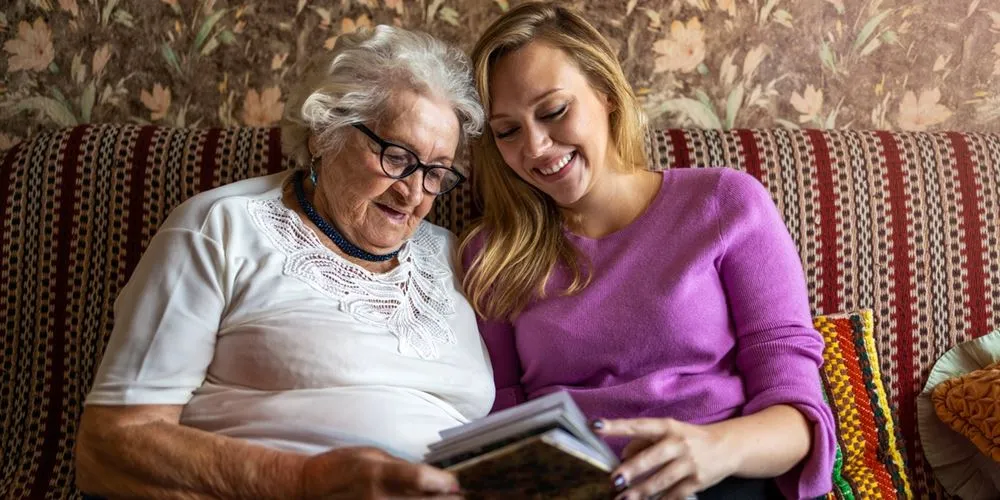
Stage 2- Moderate/Mid-Stage Dementia (MoCa Score 10-17)
In this stage, memory loss and confusion grow worse, and people may have problems recognizing family and friends. They may be unable to carry out multistep tasks such as getting dressed, lose orientation to time or place, and forget parts of their personal history. At this stage, people may need more hands-on help with activities of daily living like bathing, toileting, and eating. It is often at this point individuals may start having hallucinations, delusions, or paranoia.
What Type of Memory Care Is Best for Stage 2: In the moderate staff of cognitive decline, careful review is needed to determine where an individual will best fit in and have an optimal memory care experience. At Stage 2, a person with Alzheimer’s disease or other forms of dementia will most likely need to live in a secured memory care unit where the smaller living space and a greater ratio of staff to residents ensure that the resident will receive a higher level of attention.
In Los Angeles, there is a big quality difference between communities, which is not easily recognized if you are unfamiliar with memory care. There are a few good memory care wings of larger assisted living communities but, many of the secured wings at larger assisted living places hold a secondary position to the core business.
Working with an expert senior living advisor such as Assisted Living Locators is a smart move at all stages. In Stage 2, with the ever-changing variables that occur with cognitive decline, having an experienced partner working with you can make all the difference.
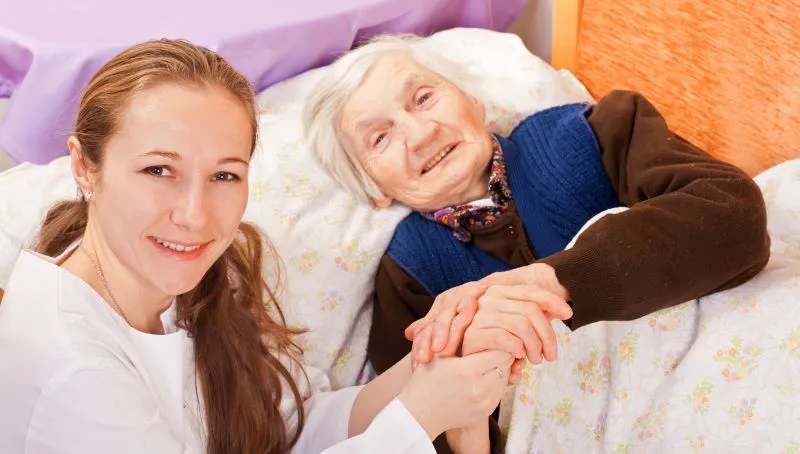
Stage 3- Severe/Late-Stage Dementia (MoCa Score <10)
In the later stages of dementia, assistance is needed with all the activities of daily life. There may be changes in personality and a person may become non-verbal. The mind loses awareness of events and surroundings, and the individual becomes completely dependent on others for their care. Near the end, the person may be in bed most or all the time as the body shuts down.
What Type of Memory Care Is Best for Stage 3: By the time somebody reaches these last stages of dementia, physical care becomes paramount. The accouterments of a larger facility such as dining rooms and movie theaters are unnecessary. They will not ambulate independently. Hands-on, 24/7 care is the name of the game.
As seniors approach moderately severe to severe cognitive decline, the small six-bed board and care homes that can be found in Los Angeles become crucially important. The intimate setting afforded by board and care homes allow for closer oversight of residents and is accompanied by a higher staff-to-resident ratio. In Los Angeles, good homes have at least two caregivers for every six residents. Most specialize in the assistance and supervision of mid to late-stage dementia residents.
There are about 1400 board and care homes in the Greater Los Angeles area, some of them terrific. Some of them, frankly, depressing with problematic Dept. of Social Service records. Choosing the right board and care home, dementia unit, or all-memory care community for your given situation is best done in tandem with professionals whose full-time job it is to understand what is available.
Where To Get Help
Assisted Living Locators Los Angeles owner Sarah Ordover is one of LA’s top senior living advisors. Certified in dementia care, Sarah is a trained aging specialist who holds an RCFE assisted living administrator’s license. Sarah thoughtfully guides families through the senior living decision-making process, helping them find the best solution for their loved ones. Call Sarah at 310-853-8282 for a consultation. Assisted Living Locators is no-cost to clients.
Sources
Stages of Alzheimer’s Disease: Alzheimer’s Los Angeles free education and support
Information on the MoCa test: MoCa Cognitive Assessment



